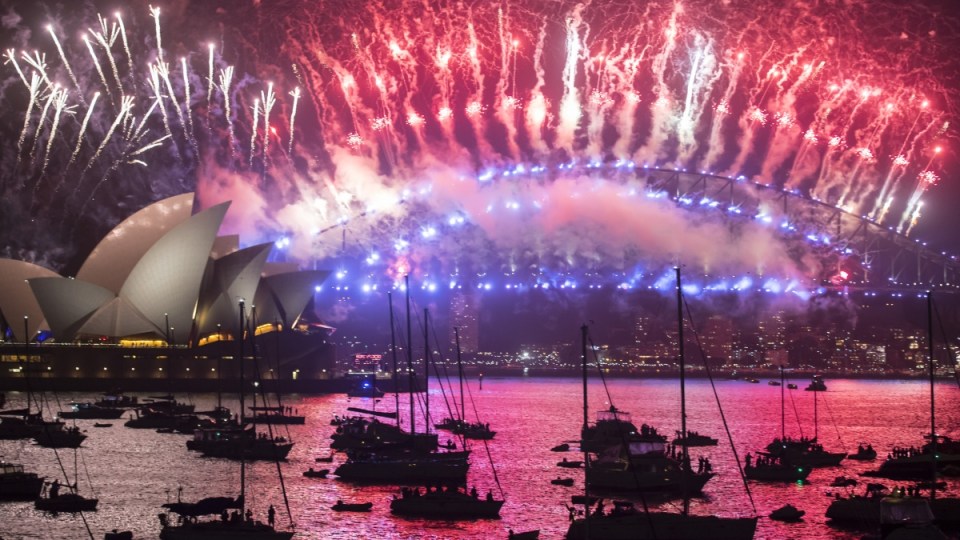


Sydney’s famed New Year’s Eve fireworks may be canned if planned industrial action brings the nation’s biggest rail network to a grinding halt on its busiest night of the year.
NSW Police Commissioner Karen Webb flagged the dramatic intervention after union work bans again caused widespread disruption on the state’s urban rail network on Friday morning.
“I have grave concerns,” she said.
“Each year, we police New Year’s Eve on the basis 250,000 people can come in and then safely leave the city.
“If trains aren’t available and people can’t leave the city, I have large concerns about the risk that will create to the public.
“I haven’t ruled out that I will recommend to [the state] government that we cancel the fireworks. It’s that serious.”
The Minns government plans to argue at a scheduled Fair Work Commission hearing on Christmas Eve that the industrial action could endanger public safety on New Year’s Eve.
But the action, limiting how far drivers can travel in a shift, would only delay trains and force some cancellations, the major train union said.
“There will absolutely still be trains running on New Year’s Eve,” Rail Tram and Bus Union state secretary Toby Warnes told ABC Radio.
Work bans forced scores of train delays and cancellations across the state on Friday – many workers’ final day in the office for 2024 – while the South Coast line was shut completely.
Transport Minister Jo Haylen poured scorn on the union’s portrayal that work bans were a means of getting the government back to the negotiating table.
“They say, ‘well, let’s talk about it’,” she said.
“But the fact is unless you agree with them, there’s no end point.”
New Year’s Eve is the busiest day on Australia’s largest rail network as millions of people are shuttled around Sydney Harbour and elsewhere in the city for the fireworks and other celebrations.
Some 3200 services ran about every five minutes “to get people in and out safely”, Haylen said.
Unions continue to demand four annual wage increases of 8 per cent. NSW Premier Chris Minns has said that is unaffordable and cannot happen while he denies nurses a similar claim.
The government previously offered 11 per cent across three years, including superannuation increases.
Rail workers were willing to settle for a middle ground, Warnes said.
“If the government wants to come to the table with an offer, they should make that offer and then we’ll take it to our members,” he said.
“If our members accept it, then the dispute is resolved.”
Outside of that, the FWC can be asked to settle the dispute from February.
-AAP










